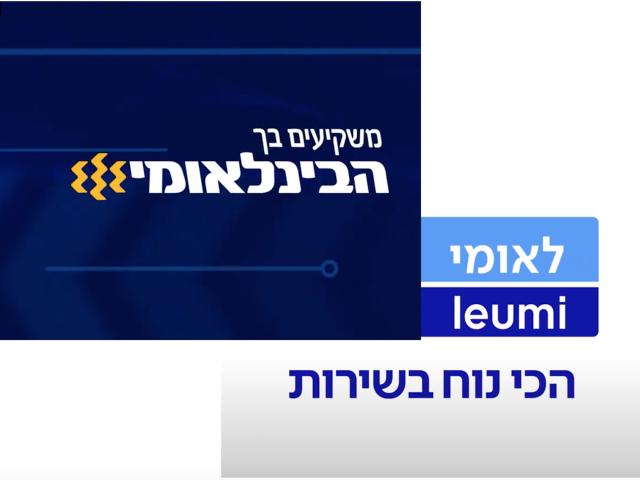The First International Bank of Israel (FIBI) reported a 10% decline in quarterly net profit, reflecting the broader economic challenges facing Israel due to the ongoing conflict with Hamas. Despite this decrease, FIBI remains robust and well-prepared to navigate the nation's security issues. The bank, Israel's fifth-largest, will distribute a 40% dividend of its net income for the quarter, affirming its commitment to its dividend policy while closely monitoring economic developments.
FIBI's net profit for the fourth quarter stood at 569 million shekels ($155 million), down from 631 million shekels the previous year. However, the bank showed a notable improvement in credit losses, with a 2 million shekel income from credit losses in the first quarter compared to a 72 million shekel expense the prior year. Its Tier 1 capital ratio increased to 11.78%, up from 11.35% at the end of 2023.
First International Bank of Israel (#FIBI) reported a dip in third-quarter net #profit, hurt by a quadrupling of its provisions to protect against future loan defaults due to economic uncertainty during #Israel's war with Hamas militants.
— Global Capital Asset Management™ (@GCAssets) November 29, 2023
Chief Executive Eli Cohen emphasized that FIBI entered the current crisis well-prepared, citing its strong capital and liquidity buffers and a high-quality, diversified credit portfolio. This preparedness has positioned the bank as one of the strongest in the Israeli banking system.
Bank Leumi, one of Israel's two largest banks, reported a significant increase in first-quarter net profit, nearly tripling its earnings from the previous year. The bank's net profit rose to 2.8 billion shekels ($761 million), driven by a one-time capital gain and a reduction in loan default provisions. This resulted in a return on equity of 20.2%. A substantial gain from the sale of its Tel Aviv headquarters contributed 632 million shekels to its profits.
Leumi's loan loss provision decreased by 45% to 222 million shekels, and net interest income slightly dipped by 4.1% to 3.8 billion shekels. The bank announced a dividend payout of 835 million shekels and launched a 1 billion shekel share buyback plan for 2024. The combined dividend and buyback for the first quarter will amount to 1.1 billion shekels, or 40% of quarterly net income, up from 20% in the previous quarter.
Israel's Bank Leumi Q1 profit soars, to buy back 1 bln shekels of shares https://t.co/cANvYbP4q6 pic.twitter.com/o2Zh3r5mrm
— Reuters Business (@ReutersBiz) May 28, 2024
The Israeli banking sector has maintained high profits and increased dividend payouts, despite the challenging economic environment. Supervisor of Banks Daniel Hahiashvili indicated that there are no concerns with banks increasing dividends due to improved capital buffers and their capacity to provide essential credit, even during wartime.
However, Israeli banks face additional financial obligations, including up to 2.5 billion shekels in extra taxes over the next two years. This tax increase aims to replenish state coffers impacted by war expenses, with banks paying an additional 6% tax on profits generated from their activities in Israel for 2024 and 2025.
Bank Leumi concludes Q1 2024 with a net income of approx. NIS 2.8 billion ($761 million) and ROE of 20.2% #BankLeumi, #LUMI https://t.co/ATHrcAbDVZ
— Crwe World (@CrweWorld) May 28, 2024
Leumi's common equity Tier-1 capital ratio, a key indicator of financial strength, rose by 75 basis points to 11.98%, well above the regulatory minimum of 10.23%. Rival bank Hapoalim also reported a dip in quarterly profit but reinstated its dividend to pre-war levels.
In summary, despite the ongoing conflict, Israeli banks like FIBI and Leumi are demonstrating financial resilience and a strong capacity to support the economy while managing their financial health and capital distributions.


